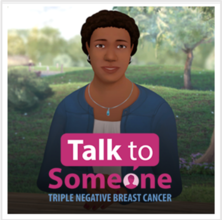National Cancer Control Month: Promoting and Using What Works to Reduce Cancer

National Cancer Control Month is here! This observance helps increase awareness about the impact of cancer across the nation, and serves as a reminder for people to take action to reduce their risk, and join the mission to prevent and control cancer in all communities. Cancer control focuses on reducing the number of new cancer cases and deaths, and improving the quality of life for cancer survivors. At CDC, this means promoting the use of evidence-based strategies for prevention, early detection, diagnosis, and treatment of cancer. Comprehensive cancer control looks at the cancer risk for people, and makes sure that communities with poor cancer health outcomes have the best opportunities for improving health. CDC’s National Comprehensive Cancer Control Program (NCCCP) brings together state, tribal, territorial, and local health departments to develop, put into action, and promote effective ways to prevent and control cancer in communities. Learn more about NCCCP. |
|

CDC's Talk to Someone Shines in the Spotlight
CDC’s Talk to Someone:Triple Negative Breast Cancer, a free online and mobile application (App), was featured in the Working 4 Your Health segment on NBC Washington, a local news broadcast in Washington, DC. Talk to Someone is an interactive conversation with Linda, a virtual coach that provides breast cancer patients with a safe environment to ask questions. In the segment, the Talk to Someone app was highly-regarded as a tool with an emotionally responsive virtual health coach to help people deal with the difficult diagnosis of cancer, and get a better understanding of their treatment plan. The segment includes interviews with Delphyne Taylor, breast cancer survivor and the voice of Linda, and Dr. Glenn Albright, co-founder and director of research from Kognito, who partnered with CDC to develop the tool. Watch the segment here. |

New Free Continuing Education: Uterine Cancer
Uterine cancer is one of the few cancers in the United States with increasing rates of new cancer cases and deaths. A CDC study previously featured in the December edition of Cancer Prevention Works, showed that uterine cancer rates increased 12% during 1999-2015, and uterine cancer death rates increased 21% during 1999-2016. These results support the need to increase uterine cancer awareness among women and health care professionals.
CDC’s MMWR and Medscape are proud to announce a new free continuing education (CE) activity for health care professionals to learn more about uterine cancer and earn CE credit. Health care professionals will have the opportunity to learn about the factors associated with increases in the rate of uterine cancer cases and the clinical and public health impact of changes in uterine cancer. To access this CE activity, register for free or login without a password on Medscape. |

New Study on Emotional Health and Use of Preventive Care Among Cancer Survivors
Serious psychological distress (SPD), a broad construct of depression, anxiety, panic, and fear, can negatively affect the health and quality of life for cancer survivors. A new study, based on data from the population-based Medical Expenditure Panel Survey (2008-2015), looks at the link between SPD and the use of preventive care services among cancer survivors compared to adults without a cancer history. Study results show that cancer survivors were more likely to have SPD than adults without a cancer history (9.8% vs 4.6%). Cancer survivors with SPD were more frequent users of medical care, reporting 10 or more visits to the doctor’s office in the past 12 months (29.3%) compared to adults without SPD (14.1%). Having SPD, with or without a cancer history, was associated with lower odds of being up-to-date with preventive care services, including cancer screening. |
|





































No hay comentarios:
Publicar un comentario